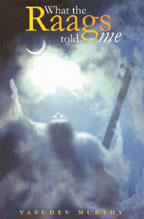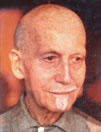
The Greek Philosophers, Aristotle, Plato and Socrates knew a thing or two about the value of music and how it relates to the functioning of society at large. Does that sound improbable? Read on.
Socrates (469-399 BC) was the 'original' philosopher who questioned the citizens of Athens on just about every possible matter. Ultimately he was accused of corrupting the youth by an insecure administration that did not appreciate dissent, and was forced to drink hemlock and die. Though he was not particularly fond of music all his life, he suddenly grew to appreciate it in his death cell. He spoke more than he wrote, so we rely on the transcriber for his comments in Phaedus
"In the course of my life I have often had intimations in dreams that I should make music. The same dream came to me sometimes in one form, and sometimes in another, but always saying the same or nearly the same words: Make and cultivate music, said the dream. And hitherto I had imagined that this was only intended to exhort and encourage me in the study of philosophy, which has always been the pursuit of my life, and is the noblest and best of music."
Plato (427-347 BC) had developed very strong views on the value of music, to the point where he urged rulers to consider traditional music to be the first fortress of the state. In his The Republic a series of fascinating dialogues between individuals, we find this gem
And what shall be their education? Can we find a better than the
traditional sort? --And this has two divisions, gymnastic for the body,
and music for the soul.
True.
Shall we begin education with music, and go on to gymnastic afterwards?
By all means.
And when you speak of music, do you include literature or not?
I do.
And he condemns the reckless introduction of new kinds of music, fearing that the very foundation of the nation-state might be affected (he ascribed this to Socrates, incidentally)
...Then to sum up: This is the point to which, above all, the attention of our rulers should be directed, --_that *music* and gymnastic be preserved in their original form, and no innovation made_. They must do their utmost to maintain them intact. And when any one says that mankind most regard the newest song which the singers have, they will be afraid that he may be praising, not new songs, but a new /kind/ of song; and this ought not to be praised, or conceived to be the meaning of the poet; for any *musical *innovation is full of danger to the whole State, and ought to be prohibited. So Damon tells me, and I can quite believe him; -he says that when modes of *music* change, _of the State always change with them_.
Aristotle (384-322 BC), was a protégé of Plato and considered a teacher of Alexander the Great. Clearly influenced by Plator, he made several important observations.
In Book 8 of Politics, Aristotle dwells on music and how it ultimately relates to the formation of a higher quality of polity. He rhetorically questions the value of teaching music: "It is not easy to determine the nature of music, or why any one should have a knowledge of it....Or again, if music should be used to promote cheerfulness and refined intellectual enjoyment, the objection still remains- why should we learn ourselves instead of enjoying the performances of others?".
He then answers: "For innocent pleasures are not only in harmony with the perfect end of life, but they also provide relaxation. And whereas men rarely attain the end, but often rest by the way and amuse themselves, not only with a view to a further end, but also for the pleasure's sake, it may be well at times to let them find a refreshment in music.....Enough has been said to show that music has a power of forming the character, and should therefore be introduced into the education of the young. The study is suited to the stage of youth, for young persons will not, if they can help, endure anything which is not sweetened by pleasure, and music has a natural sweetness."
With these and additional arguments, he holds that:
..better the character (of the people, developed by the study of music), the better the government."





